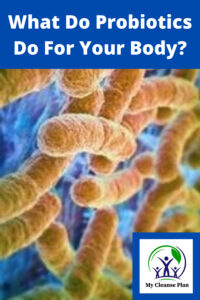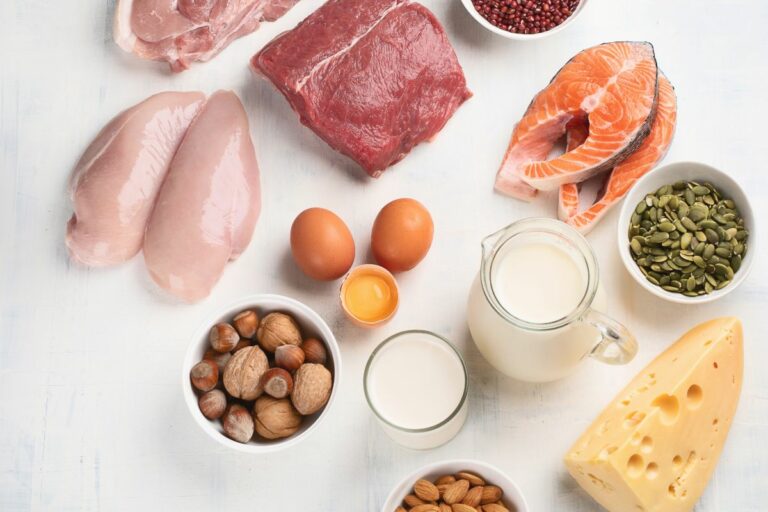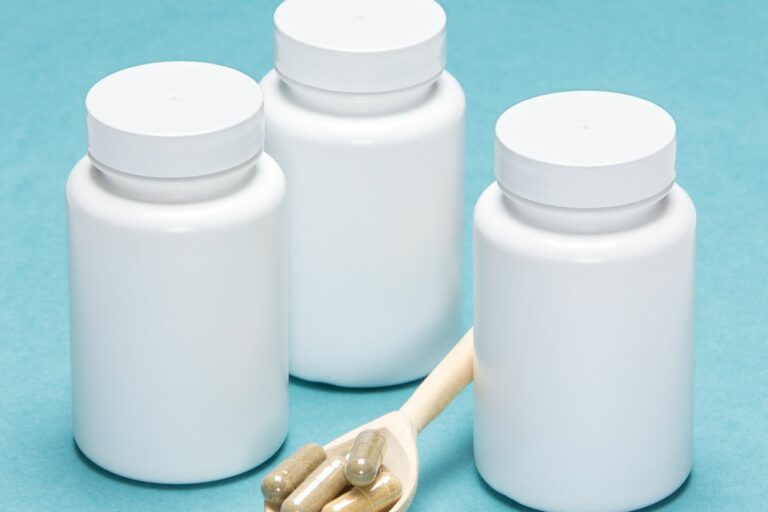Do Probiotics Really Keep You Healthy
We first found out about probiotics when Elie Metchnikoff introduced the concept in the early 20th century.
Elie was a Russian-French immunologist who won the 1908 Nobel Prize for his studies. He is known as “the father of probiotics”.
In this article, I will discuss what are probiotics, what probiotics do for you, some sources, and some benefits of probiotics.
What are Probiotics
Essentially, probiotics are the body’s natural cleansing system that removes unwanted toxins.
The term probiotics come from two Greek words, pro meaning “promoting” and biotic meaning “life”. Probiotics literally mean promoting life.
This is accomplished by the bacteria that live in our digestive system, primarily the intestines.
Don’t worry, these bacteria are actually good for you and do a lot for your body as we will see next.
What Do Probiotics Do For You?
These bacteria are often referred to as good bacteria and they help breakdown our food so that our body can use it:
- These bacteria help convert undigested starches, fiber, and sugars into usable energy and nutrients for the body to use.
- The bacteria are vital to preventing the buildup of waste material in the intestines. Too much buildup can cause a variety of problems to our health.
- They help control the population of bad bacteria in our bodies. 85% of good bacteria to 15% of bad bacteria are considered healthy.
- Good bacteria help your immune system to distinguish between pathogens and non-harmful antigens. This will help with allergies for one.
- The good bacteria produce an enzyme known as lactase, this is what breaks down the dairy products that we consume. The term “lactose intolerant” refers to when our body does not produce this enzyme and is unable to break down the fat and sugars in dairy products.
- Probiotics stimulate the production of B12 in our body, giving us natural energy.
Did you know that 80% of the cells of our immune system reside in your digestive system? This is why digestive health is so important.
What can happen if the ratio of good and bad bacteria is out of balance?
When the ratio becomes unbalanced and we do not have enough good bacteria. This can lead to health-related problems. Here are just a few that the imbalance has been linked to:
- Ulcers
- Colitis
- Irritable bowel syndrome
- Celiac disease
- Chron’s disease
- Obesity
- Diabetes
- Liver disease
What are the sources of probiotics?
Probiotics can be found in a variety of foods that contain fermentation microbes such as:
- Fermented cheese – this type of cheese was around before refrigerators. This is a hard cheese that has live cultures added to them and does not require refrigeration. It’s what grandma used to have out on the counter.
- Raw Cheese – unpasteurized cheese can have certain probiotics that may be killed in the pasteurization process.
- Some yogurts – look for ones that say “live and active cultures”
- Lactobacillus milk – this is milk that has the same bacteria in it as yogurt
- Kefir -This is a fermented milk product, like a drinkable yogurt. This can be made with milk from a cow, goat, sheep, or even coconut.
- Kombucha – fermented black tea originally from Japan
- Natto – a popular Japanese fermented soybean dish
- Miso – Japanese fermented soybean, barley, or brown rice with koji (a type of fungus)
- Kvass – fermented rye, barley, beets, or a variety of fruits and vegetables. This is usually found in Eastern Europe
- Tempeh – a fermented soybean product from Indonesia
- Apple cider vinegar
- Sauerkraut
- Kimchi
- Olives
- Pickles
What are some benefits of probiotics?
Probiotics can help with digestive system problems as well as other areas of our body:
- Help to lower bad cholesterol
- Help to lower blood pressure
- Help infants with eczema
- Reduce inflammation
- It May help prevent or recover faster from diarrhea or constipation
- Help relieve symptoms from irritable bowel syndrome (IBS)
What about probiotic supplements?
Supplements can provide much-needed bacteria:
- Once we hit 60, our body produces fewer good bacteria, supplements can help maintain the 85 to 15 ratios.
- After we recover from an illness, especially if we took antibiotics. Antibiotics will kill many of our good bacteria and supplements can help quickly replace them. This will get our bodies back in balance.
- If you are allergic to dairy products, supplements are a good alternative. As we saw above, there are non-dairy choices available.
Explore Also:
Creativehouseblog
Dietsheriff
Gigasecurehome
Final Thoughts
As we have discussed, not all bacteria are bad. Now you should have a better understanding of what probiotics are, what they do, and some of their benefits.
Our bodies are constantly being destroyed by what we eat and how we live.
To stay healthy and happy, we need to help our bodies help us. I
f we continue to eat large amounts of processed and fast foods, our bodies will start to break down, we will have less energy, we will be more susceptible to disease, take longer to recover from injuries, and the list goes on and on.
The bottom line, if we take care of our body, it will take care of us. Maintaining a healthy digestive system is a big part of keeping us healthy and happy.
Please leave your comments, questions, or if you would like to see something in a future article below.
Thank you for reading and taking care of those good bacteria.
Other articles to read:
How To Have A Healthy Colon For Life
7 Best Colon Cleanses For Weight Loss
Here is a PIN to share with your friends on Pinterest:











![How Gut Health Research Evolved A Story of Discoveries[1]](https://mycleanseplan.com/wp-content/uploads/2025/11/How_Gut_Health_Research_Evolved_A_Story_of_Discoveries1-768x448.jpg)


Hi Jim.
This article was a wealth of information for me.
Believe it or not, I have never been able to understand what a probiotic is. This made it so clear. Your explanation was perfect for me. Probiotics promote life. How simple is that!!!
I will get my family on probiotics ASAP.
Thanks so much for getting this information out there.
All the best.
Hi Wendi,
Probiotics are just one of the easy things that we can take to help our bodies. They are commonly found in a capsule or powder form. Take a look at my review on Invite Health products here, they have a good probiotic as part of their line. You may want to check out some of their other products as well.
Thank you for your comment,
Jim
I have been using probiotics for months now and have noticed positive gut effects. I’m confused though as to know which probiotics I should be buying and if there are any differences between brands. Honestly, I’ve just been sticking with the top well-known brands but I want to make sure I’m getting what’s best for my body.
Hi, if you have found a probiotic that is working for you, I would stick with it. Otherwise, selecting a probiotic can be confusing with all the brands out there. A well known brand like Renew Life or Dr Tobias have been pretty good for me in the past. Recently I tried Invite Health’s Digestive plus and had some really good results.
Thank you for your comment,
Jim
I’ve had doctor’s and pharmacists recommend antibiotics to me frequently whenever I’m taking antibiotics. I have to imagine that all the supplements aren’t created equal though. How do I tell a high quality supplement from something that’s cheap and useless?
Before I take any supplements, I like to read reviews and research the products first. One thing that I have found out is a high cost product does not always mean a high quality product. This is where research comes in.
The probiotic that I currently take is P3-OM by BIOptimzers. I have only been taking it a couple of weeks and seems to be effective. Combining this with BIOptimizers Masszymes makes me feel lighter and not bloated after eating.